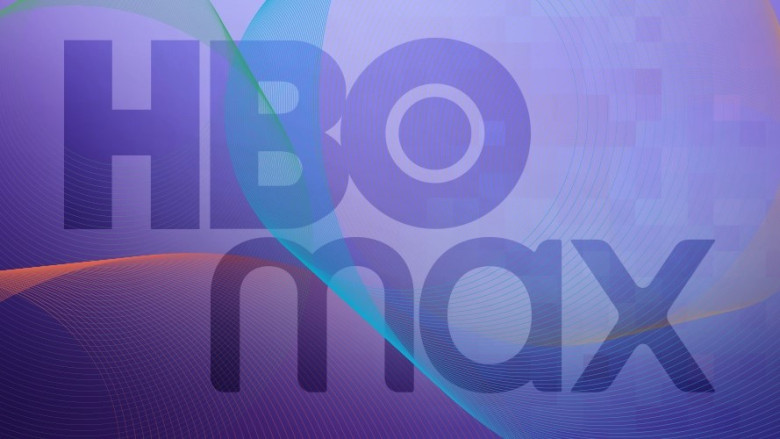AMC CEO Adam Aron chose to cite Winston Churchill during his company’s quarterly earnings call May 6. “‘Now this is not the end,'” he said. “‘It is not even the beginning of the end. But it is, perhaps, the end of the beginning.'”
As the leader of the #1 domestic and worldwide exhibitor, Aron was dead-on in describing where theaters, and the film industry, stand in this moment. Although AMC lost $576 million in the first three months of 2021, its overall financials greatly improved. And after significant maneuvers, the company has over $1 billion cash on hand — the highest in its history.
Thus ends the “beginning” of what is a changed world for theaters. And like Churchill’s statement — made in 1942, after the U.S. entered WWII — it comes at a time when the outcome remains in doubt.
Exhibitors have reason for optimism. In much of the world (though not the COVID-overwhelmed India), the pandemic tide appears to have turned. There’s a semblance of normalcy in upcoming release schedules and an ability to maximize capacity. In some cases, surviving theaters might benefit from reduced competition.
For some exhibitors, the new-world financials are also starting to settle into place. On May 7, Cinemark announced that it reached rental agreements with Warner Bros., Disney, Paramount, and Sony, in addition to the one it established with Universal last November. This speaks to a new normal that is very abnormal: The 75-day window for Premium VOD (90 days for standard) is now part of cinema history. Unlike decades of industry-standard arrangements, we now have a widely divergent set of rules for each studio.

HBO Max
WarnerMedia
Warner Bros.: Starting in 2022, the studio’s releases will not stream on HBO Max for 45 days.
Universal: Any film that grosses under $50 million opening weekend can be released on PVOD after 17 days, over $50 million, after 31 days.
Paramount: Films have a 45- or a 60-day window, as determined case by case pre-release.
Sony: No set policy to date. “Monster Hunter,” their biggest release in the past year, didn’t go PVOD until after 60 days in theaters. The next significant Sony release is “Peter Rabbit: The Runaway” on June 18.
Disney: The company with the largest market share has the greatest variety in its release strategies. Upcoming titles range from same-day PVOD and theaters; possible initial theater exclusives; and points in between. “Cruella,” opening May 28 in theaters and on PVOD for Disney+ subscribers, is listed among upcoming titles on Cinemark’s website. AMC’s Aron touted “Black Widow” — similarly day and date July 9 — as a major future film.

Cinemark Theaters
Courtesy Cinemark
Cinemark looks to have reached general understandings with the five top studios on film rentals, windows policies, possible PVOD revenue sharings. Theaters need clear terms to operate, not the shock and awe of the last 12 months. While these terms reflect a new balance of power with the studios in control, it beats uncertainty. Studios are coming out of the pandemic with their own turmoil and losses, but they are in much better shape than the theaters.
During AMC’s quarterly meeting, Aron suggested that grosses for domestic theaters for 2021 will total $5 billion. In 2022, he predicts $8.2 billion. Currently, 2021 grosses are under $500 million.
It’s in Aron’s interest to present the most optimistic scenario. He projects 2022 will be down 29 percent from 2019 and 31 percent from 2018. Could exhibition’s narrow margins survive that? Pre-pandemic, those numbers would be potentially fatal to the industry’s top players. Among the factors that could help them pull through are renegotiated leases, lower film terms, reduced internal costs, reduced competition, and more non-traditional uses for their facilities.
For now, no one can be complacent. Studios will make decisions in their own best interests, including upending present agreements if needed. They can determine which films go direct to their own streaming outlets, get sold to others, or play PVOD immediately. Meanwhile, many producers are going direct to streamers to make their movies.
Aron’s choice of Churchill’s words was apt. Britain was on the winning side of World War II, but the prime minister lost something vital in its wake: He saw his country give up most of its empire within a decade. Within 20 years, nearly all of it was gone. For surviving theaters, they too are likely to face a smaller world ahead.
As the leader of the #1 domestic and worldwide exhibitor, Aron was dead-on in describing where theaters, and the film industry, stand in this moment. Although AMC lost $576 million in the first three months of 2021, its overall financials greatly improved. And after significant maneuvers, the company has over $1 billion cash on hand — the highest in its history.
Thus ends the “beginning” of what is a changed world for theaters. And like Churchill’s statement — made in 1942, after the U.S. entered WWII — it comes at a time when the outcome remains in doubt.
Exhibitors have reason for optimism. In much of the world (though not the COVID-overwhelmed India), the pandemic tide appears to have turned. There’s a semblance of normalcy in upcoming release schedules and an ability to maximize capacity. In some cases, surviving theaters might benefit from reduced competition.
For some exhibitors, the new-world financials are also starting to settle into place. On May 7, Cinemark announced that it reached rental agreements with Warner Bros., Disney, Paramount, and Sony, in addition to the one it established with Universal last November. This speaks to a new normal that is very abnormal: The 75-day window for Premium VOD (90 days for standard) is now part of cinema history. Unlike decades of industry-standard arrangements, we now have a widely divergent set of rules for each studio.

HBO Max
WarnerMedia
Warner Bros.: Starting in 2022, the studio’s releases will not stream on HBO Max for 45 days.
Universal: Any film that grosses under $50 million opening weekend can be released on PVOD after 17 days, over $50 million, after 31 days.
Paramount: Films have a 45- or a 60-day window, as determined case by case pre-release.
Sony: No set policy to date. “Monster Hunter,” their biggest release in the past year, didn’t go PVOD until after 60 days in theaters. The next significant Sony release is “Peter Rabbit: The Runaway” on June 18.
Disney: The company with the largest market share has the greatest variety in its release strategies. Upcoming titles range from same-day PVOD and theaters; possible initial theater exclusives; and points in between. “Cruella,” opening May 28 in theaters and on PVOD for Disney+ subscribers, is listed among upcoming titles on Cinemark’s website. AMC’s Aron touted “Black Widow” — similarly day and date July 9 — as a major future film.

Cinemark Theaters
Courtesy Cinemark
Cinemark looks to have reached general understandings with the five top studios on film rentals, windows policies, possible PVOD revenue sharings. Theaters need clear terms to operate, not the shock and awe of the last 12 months. While these terms reflect a new balance of power with the studios in control, it beats uncertainty. Studios are coming out of the pandemic with their own turmoil and losses, but they are in much better shape than the theaters.
During AMC’s quarterly meeting, Aron suggested that grosses for domestic theaters for 2021 will total $5 billion. In 2022, he predicts $8.2 billion. Currently, 2021 grosses are under $500 million.
It’s in Aron’s interest to present the most optimistic scenario. He projects 2022 will be down 29 percent from 2019 and 31 percent from 2018. Could exhibition’s narrow margins survive that? Pre-pandemic, those numbers would be potentially fatal to the industry’s top players. Among the factors that could help them pull through are renegotiated leases, lower film terms, reduced internal costs, reduced competition, and more non-traditional uses for their facilities.
For now, no one can be complacent. Studios will make decisions in their own best interests, including upending present agreements if needed. They can determine which films go direct to their own streaming outlets, get sold to others, or play PVOD immediately. Meanwhile, many producers are going direct to streamers to make their movies.
Aron’s choice of Churchill’s words was apt. Britain was on the winning side of World War II, but the prime minister lost something vital in its wake: He saw his country give up most of its empire within a decade. Within 20 years, nearly all of it was gone. For surviving theaters, they too are likely to face a smaller world ahead.


